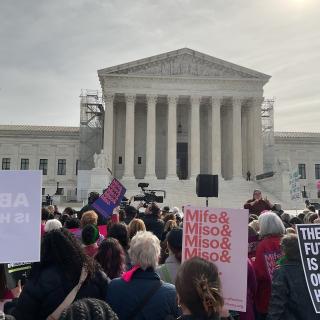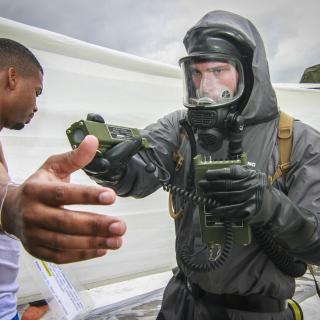Advertisement
When was the last time you lost track of your friend at a protest against a US war because you were among hundreds of thousands of fellow activists also out in the streets? When was the last time you had to squeeze yourself into a teach-in against US foreign policy because the room was packed? It's been a while? Then you are not alone.
Unseen Wars
Is it because we have managed to make the US government less bellicose? Far from it. Afghanistan is soon to become the longest US war in history, surpassing the Vietnam war. The numbers of US troops in war zones are actually on the rise. The Pentagon has stopped disclosing exactly how many of them are deployed in Syria, Iraq, and Afghanistan; but it does admit that the number of "contractors supporting U.S. Government operations in Iraq and Syria" has soared to 11,995, of whom 5,508 are directly funded by it, while the DOD contractors alone number 26,647 in Afghanistan. In "every major post-9/11 war there have been 2.5 to 3 DOD contractors per each US troop," reminds Chatham House researcher Micah Zenko. Not incidentally, a majority of those contractors -- to say nothing of forces employed in covert actions, to which the US government does not own up, seeking to maintain "plausible deniability" -- are locals and third-country nationals, not US citizens.
In other words, more secrecy, outsourcing, and outright privatization have made US wars much less visible than before, while more mechanization (most obviously drones) and professionalization (an increased use of special forces on top of the absence of conscription) have made it easier for the US government to compartmentalize war fighting from the everyday life of US civilians. In the United States, the Korean war is often referred to as the forgotten war. Virtually every war now being waged by the US government may well be called an unseen war -- a war that does not even have to be "forgotten" because the government has figured out how to make it unlikely to register in the minds of many Americans in the first place. A neoliberal war costs the ruling class less -- politically too, not just economically.
Red Herring
Added to the problem are Clintonite pundits working hard to redirect people's anger -- away from the bipartisan program of neoliberal economics and law and order politics at home and abroad, which made Hillary Clinton so unpopular among so many Democrats that the left wing of the Democratic Party came close to succeeding in making an avowed socialist the party's presidential candidate. Enter the red herring: Russophobia. Reminiscent of the age of "Red Scare" propaganda, those pundits would rather blame Russia for Donald Trump's election as if he were a character from The Manchurian Candidate and snipe at him from the right for being "soft" on North Korea.
¡Presente!
How do we make matters of war and peace part of everyday life again when they have been effectively censored out of our consciousness by the powers that be? How do we take back the mantle of resistance from the "opposition party" whose power elite would rather oppose Trump from the right than the left? There is no simple answer to these questions. But there is a small step we can take while putting our heads together over what is to be done: to memorialize our own fallen veterans of peace activism, making them forever "presente" (as activists say in Spanish) in the community at large. On May 14, Central Ohioans for Peace (COFP) held an event "Remembering Peacekeepers Who Have Left Us," to salute the memories of the COFP participants who died in recent years: Bill, Laura, and Van Barndt; Lance Shreffler; Bill Lewis; Dottie Turner; Liz James; Art Gish; Art Strauss. Among those honored at the event were Peg Stansbery and Samir Gharbo. Their lives are a reminder that the struggle for the rights of the oppressed, the struggle for economic justice, and the struggle against racism and Islamophobia are essential to the struggle against US imperialism; and that patience -- sustained by a sense of humor shared with wide networks of loving friends and families -- helps you persist in these intertwined struggles for decades. Their memories will inspire our upcoming third annual concert to commemorate Hiroshima and Nagasaki, featuring the original compositions of Columbus's own Rocco Di Pietro, David Tomasacci, and Ramsey Sadaka, as well as the works of Halim el-Dabh, Alan Hovhaness, Julius Eastman, and György Ligeti. (Time and Location: July 30, 2018, 6:30-8:00pm, the Center for Workforce Development Ballroom, Columbus State Community College, 395 Grove St., Columbus, Ohio -- parking permits available.) Come and help make the memories of war and a future of peace presente!



